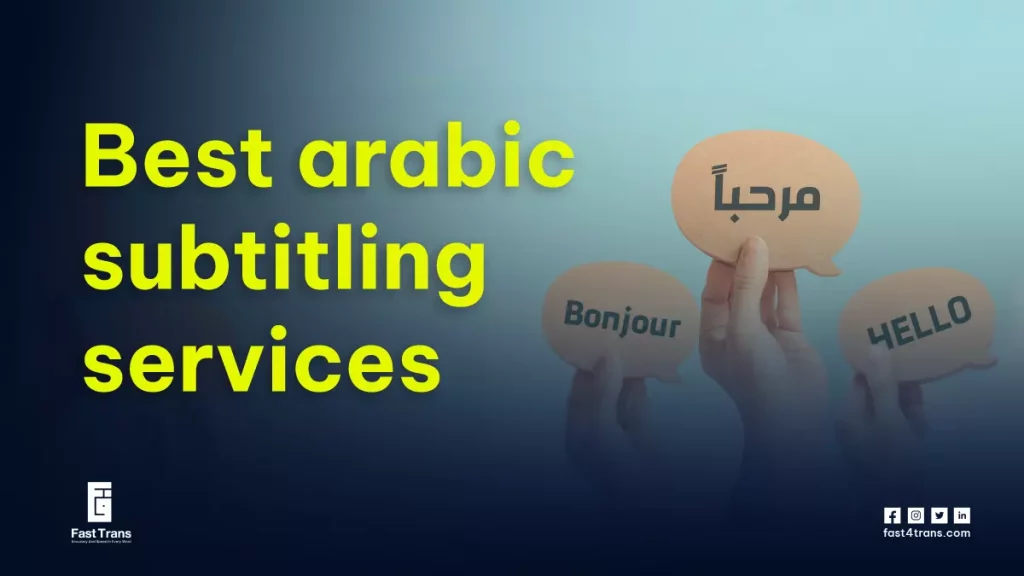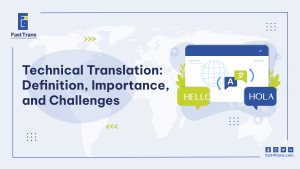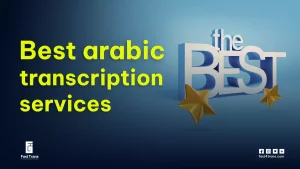Arabic subtitling is a gateway to connecting with one of the world’s largest linguistic audiences, blending cultural richness with global accessibility. The Arabic Subtitling Importance is a tool for breaking language barriers, it amplifies the reach of films, series, educational content, and corporate messages across the Arab world. Beyond entertainment, it fosters inclusivity, enabling learners, businesses, and creators to engage effectively with diverse and hearing-impaired audiences. In a digital age fueled by globalization and AI, Arabic subtitling transforms communication, making content resonate deeply within the Arab-speaking community while opening doors to new markets and ideas.
The Arabic Subtitling Importance
It’s noteworthy that Arabic subtitling services are very important in the video industry for many reasons. Firstly, Arabic language is the fifth spoken language around the world, secondly, the Arab world is a huge marketplace for whoever wants to convey a message, sell a product, or spread an idea out to a wide spectrum of audiences, thirdly, Arabic subtitling opens the door for several linguists and subtitling professionals to have an abundant world flow. Fourthly, Arabic subtitling plays a vital role in conveying what’s happening in the Arab world as we are in a time when visuals affect public opinion. Fifthly, Arabic subtitling reflects the vast array of Arabic culture, such as movies, series, documentaries, and programs.
Read more: A Comprehensive Guide to Arabic Transcription
Multiple Arenas of Arabic Captioning and Subtitling
Moving to the arenas of captioning and subtitling, it’s necessary to differentiate, in the first place, between both concepts as they can be overlapped. Firstly, captions are text versions of the visuals spoken part, so they are in the language of the medium rather than a translation into another language. Subtitles are translations that are designed for people who don’t speak the language of the medium. Captions can be used to make visual content accessible for people who are deaf or mute, help non-native English or any other language speakers understand the content, increase the average watch time of the videos, rank the videos higher on Google and YouTube, and enhance the user experience regardless of their health conditions or the environment they are in while watching the videos. Subtitles, on the other hand, can be used in movies, series, programs, and documentaries to offer translations to people who don’t understand the language of the video content and help it to go viral among the Arabic-speaking communities.
Advantages of Arabic Subtitling for educational, corporate, and webinars
Having mentioned the various arenas of subtitles, Arabic subtitling has so many advantages in the diverse aspects of life, such as education, businesses, and webinars. Education is a field where subtitles can play a major role in today’s world. Firstly, Arabic subtitles help to sustain the student’s concentration, let them engage actively in the classroom, strengthen their ability to remember and understand the online lectures, allow the students to learn everywhere even when the level of noise is high, break down the language barriers among diverse students from different Arabic backgrounds, help the hearing impaired students to understand the pieces of information that is provided for them via online platforms, and boost the online educational videos around the world.
Webinars are also a type of interactive activity where a speaker shares his ideas with several audiences. Arabic subtitling can play a major part in conveying the speaker’s messages and ideas to the Arab listeners helping them to interact with the speakers actively and accurately, and assisting the listeners in memorizing the speaker’s ideas and information. Corporates and businesses can also benefit from Arabic subtitling services in many ways. Firstly, it helps to get wider reach and engagement on social media platforms and websites among Arab users, secondly ensures effective understanding by overcoming the Language barrier by using the proper dialect, and guarantees high return on investment in terms of conversions and profit margins, help the hearing impaired or deaf customers to know more information about the businesses’ products and services.
Read more: Translating subtitles: Everything you need to know
Characteristics and Requirements of Arabic Subtitling
It’s noteworthy that Arabic subtitling has certain characteristics that make it stand head and shoulders over the other types of translation. Firstly, the subtitle translator may not have access to the written script of the video content, especially in the commercial subtitles, secondly, he is frequently asked to work across the aisle and interpret what is meant in the dialogue rather than translate the text as it is, the subtitle translator can condense to the dialogue to maintain acceptable reading speed, he can translate the form and the meaning together, and he may reformulate the sentences by either adding words or notes. These are some characteristics of an Arabic subtitler who conducts the whole process. As for the requirements of Arabic subtitling, it’s worthwhile to have a guideline by which the subtitle translator abides. There are general requirements of Arabic subtitling as every company has its requirements concerning technicalities, scripts, culturally specific terms, continuity, numbers, characters, titles, speed, etc…
The future of Arabic subtitling services
We are living in a time where pictures and videos dominate the scene and influence public opinion. Most people, in today’s world, love to hone their knowledge and increase their information flow by exposing themselves to informative videos and useful visuals. It’s noteworthy that the future of Arabic subtitling services, as per the aforementioned reason, is promising and flourishing. With the advent of artificial intelligence, cloud computing, and other technologies, the future of Arabic subtitles is bound to succeed because of the increased globalization promoting content sharing across borders, the expansion of E-learning Arabic materials, the spreading of businesses entering the Arab markets that necessitate the Arabic subtitles, and the rapid awareness of accessibility needs leading to inclusive media for the hearing impaired Arabic speaking society.
Read more about: Arabic subtitling translation Full Guide
How Fast Trans handle Arabic subtitling services?
At last, Fast Trans can deal with Arabic subtitling services by following certain procedures; firstly, the company can conduct internships under the supervision of subtitling professionals as per the required Arabic dialect. This will help to have a well-trained, properly cultured, and experienced group of subtitle translators, secondly, it has to hire subtitle reviewers to have a second eye on the final translation to make sure that the culturally specific terms are adequately- conveyed to the target audiences in the Arab world, thirdly, it’s obliged to use modern technologies to conduct the subtitling translation professionally and accurately.
Conclusion
Arabic subtitling is an essential service that bridges the gap between global content and Arabic-speaking audiences. As the fifth most spoken language worldwide, Arabic holds vast potential for reaching diverse viewers, making it an indispensable tool for marketers, educators, and creators aiming to engage the Arab world’s expansive market. Subtitling allows for seamless communication, breaking language barriers while showcasing the rich cultural tapestry of Arabic media through films, series, and documentaries. Moreover, its significance extends beyond entertainment, influencing public opinion by providing access to global narratives and amplifying voices from the Arab world.
The Arabic Subtitling Importance is transcends cultural promotion, proving invaluable in education, corporate communication, and webinars. In educational settings, Arabic subtitles enhance understanding, accessibility, and engagement, especially for hearing-impaired students or diverse learners. Businesses leverage Arabic subtitling to broaden their reach, ensuring messages resonate with Arab audiences, overcoming dialectal differences, and fostering inclusivity. The rising demand for Arabic subtitles, fueled by globalization and technological advances, underscores their vital role in creating inclusive, accessible, and impactful multimedia content for the Arab-speaking community.










